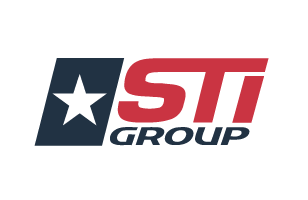Welding, a crucial technique in industrial welding and steel welding, is a core part of the industrial fabrication process. The quality and integrity of the finished product are directly linked to the quality of the welding itself. This makes it extremely important for welders best practices to be followed to ensure top-quality output. Let’s take a look at some key best practices for industrial welding.
Understanding the Objective
For best results it is crucial for welders and craftsmen to fully understand the objectives of the project. This means being clear on all customer specifications and resolving any sources of uncertainty before welding begins. Welders must always be welding with clear goals and expectations in mind.
Understanding Challenges
Connected to understanding the objectives and specifications of the project is understanding and preparing for any challenges. For example the project may call for welding in an unusual position or in a challenging environment. Likewise, the job may require an extra level of speed if the project is on a tight timeline, or it may require an exceptionally high level of precision and rigorous testing. Understanding the unique challenges of the project is crucial for successfully overcoming them.
Selecting Welding Process and Materials
Different welding processes are better suited for use on different materials or circumstances. For instance, SMAW or stick welding, often used in pipeline welding, is ideal for portability and well suited to a variety of metals and alloys, including stainless steel, but it cannot be automated and may spatter, requiring extra cleanup. Meanwhile, GTAW or TIG welding is a high-precision welding process that doesn’t create any spatter. Still, it requires a high degree of operator skill and has a relatively high cost compared to many other welding processes. Other welding processes come with their own particular pros and cons, thus a crucial best welding process is selecting the correct welding process for the job. For instance, a specific type of welding known as Tungsten Inert Gas (TIG) welding, notable for its precision and versatility with different metals, is frequently used for creating and repairing joints during boiler repair and maintenance.
As briefly mentioned above, different welding processes call for different levels of welder expertise. Likewise, welding in different positions or on different materials also requires different levels of expertise, and fundamentally it is crucial that the welder performing the job be experienced in the project’s particular circumstances. Ensuring the expertise of the welder is a key best welding practice.
Safety Protocols in Welding
At STI Group, we prioritize the safety of our welders and the workplace. Our comprehensive safety protocols include the use of advanced welding helmets to protect against sparks and harmful rays, flame-retardant aprons, sleeves, and jackets, and specialized welding gloves. We also emphasize the importance of respiratory protection to safeguard against hazardous welding fumes. Our welders are equipped with flame-retardant boots to protect against sparks and hot materials, ensuring a safe and secure welding environment.
Gathering Personal Protective Equipment
Personal protective equipment, or PPE, are OSHA requirements covered in sections 1910.252(b)(3) and 1910.132 and are thus legal requirements for operating a safe jobsite. PPE refers to a range of protective equipment including Welding helmets, safety glasses and goggles, welding gloves and skin protection gear, noise protection devices like earplugs and ear coverings to sparks from burning welders’ ears, respiratory protection and ventilation equipment and an array of other equipment that may be necessary for the particular job. Gathering the correct personal protective equipment, ensuring that it is in good working order, and that it fits the welder is a crucial best practice.
Controlling the Welding Environment
While it won’t always be possible to control every aspect of the welding environment, especially for field welding, it is important for welders to control the factors that they can. Workspaces should be kept free of fire hazards, equipment should be properly grounded, clutter and debris should be removed promptly, and co-workers should be made aware of the work the welder is doing, both for their own protection and that of the welder. Controlling the welding environment as much as possible will yield better results.
Industry-Specific Welding Applications
Our welding expertise is not limited to industrial fabrication. We extend our services to various sectors, including shipbuilding, automotive, aerospace, and construction. Each industry has unique welding requirements, and our team is equipped with the knowledge and tools to meet these diverse needs.
Completing the Job
Once the job is complete or has reached a stopping point, it is important for the welder to take certain steps before leaving. Welding equipment must be turned off and properly secured, basically, cleanup should be performed on the area, especially if failure to do so poses safety hazards, and the finished product should be carefully tested and inspected to ensure that it meets quality standards.
STI Group takes welding best practices very seriously and maintains the highest quality and safety levels at all times. STI Group, a leading welding company and welding fabrication shop, maintains a weld reject ratio of less than 1% and provides dependable pipeline welding, stainless steel welding, and other industrial fabrication services. Our fabrication facilities hold ASME “U” and “S” stamps, NBIC “R” stamps, and our welders are NCCER certified.
Our commitment to the highest quality, safety, and efficiency standards extends to all our services, which include, but are not limited to:
- High Pressure Pipe Fabrication: Our team is skilled in fabricating pipes that can withstand high-pressure applications, ensuring durability and long-term performance.
- Structural Steel Fabrication: We offer expert services in the creation of customized structural steel components that meet stringent quality and safety standards.
- Modular Fabrication: Our modular fabrication services provide clients with efficient and flexible solutions, tailored to their specific project requirements.
- Heat Exchanger Services: We provide comprehensive services for heat exchangers, from design and fabrication to maintenance and repair.

